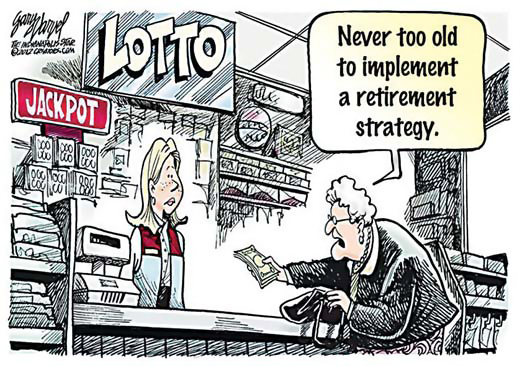Wise as a Serpent: Live for Today, Save for Tomorrow
By Mark Levitt
This article appeared originally in the May 2012 Levitt Letter.
Many criticize AARP (formerly the American Association of Retired Persons) for a variety of reasons. Nonetheless, their recent article, written by Carla Fried and excerpted below, has merit. In short: live long, [keep working,] and prosper. Assuming the Lord tarries, retirement planning is simpler for those who keep working, even part time, into their late 60s. www.aarp.org/money/budgeting-saving/info-11-2011/live-for-today-save-for-tomorrow.html
According to Business Insider website, “Work till you drop is becoming the boomers’ new motto.” That’s fine with me, frankly, and reminds me of what the Bible says about some of the best things in life: working hard, eating when hungry, and resting when tired (Ecclesiastes 2:24). —Mark
 More than 60 percent of workers say they expect to retire at age 65 or later, according to the most recent survey by the Employee Benefit Research Institute, up from 45 percent in 1991.
More than 60 percent of workers say they expect to retire at age 65 or later, according to the most recent survey by the Employee Benefit Research Institute, up from 45 percent in 1991.
“The payoff of working longer,” says Steven A. Sass, who coauthored Working Longer: The Solution to the Retirement Income Challenge, “is that you can preserve your retirement savings and delay taking Social Security.” Medical researchers have long known that staying on the job pays benefits to the mind and body.
Put yourself in a position where you can afford to stop saving, or at least slow down, when you reach 60. Then: Live a little. What you’ll need depends on your current income, as well as the date when you expect to start tapping your savings and collecting Social Security. Bottom line: The longer you keep your hands off the retirement cookie jar, the less you’ll need to have saved up by age 60. Dramatically less.
The Retirement Policy Center at the Urban Institute estimates that for every year you work past age 62, you increase your eventual retirement income by an average of 9 percent. At that rate, working eight years longer would double your retirement income. Here’s why:
- Working longer means your retirement savings need not stretch over so many years.
- You give your savings more time to grow.
- You can delay claiming your Social Security.
- Finally, you reduce your out-of-pocket health care costs.
Don’t stop contributing to your 401(k) if your employer provides a match. Don’t drag debt into retirement. Don’t think you can give full retirement a whirl at age 62 and then just go back to work if your new life doesn’t shake out as expected. “Retirement is a bit of a black hole,” says Sass. “It’s habit-forming.”
Take care of yourself. A healthier you increases the odds you’ll be able to keep working. It also makes it likelier you’ll enjoy your 60s—and beyond.
Copyright © 2012 Zola Levitt Ministries
